Regency Era Prime Ministers-Charles Grey
Regency History
Often in my research I keep needing to find who was leading the government and do this through every book. I thought that having the list handy would be good, and then turning it into a research webpage even better. Here is the list. After I post a few more Timeline years and write some more, I will work on the web page with notes about each PM.
The next PM I am doing is Charles Grey, and I am hosting a page devoted to him and then all our period PMs at Regency Assembly Press. That page is here.
William Henry Cavendish-Bentinck, 3rd Duke of Portland
04/02/1783
12/19/1783
Whig
William Pitt the Younger
12/19/1783
03/14/1801
Tory
Henry Addington 1st Viscount Sidmouth, “The Doctor”
03/14/1801
05/10/1804
Tory
William Pitt the Younger
05/10/1804
01/23/1806
Tory
William Wyndham Grenville, 1st Baron Grenville
02/11/1806
03/31/1807
Whig
William Henry Cavendish-Bentinck, 3rd Duke of Portland
03/31/1807
10/04/1809
Tory*
Spencer Perceval
10/04/1809
05/11/1812
Tory
Robert Banks Jenkinson, 2nd Earl of Liverpool
06/08/1812
04/09/1827
Tory
George Canning
04/10/1827
08/08/1827
Tory
Frederick John Robinson, 1st Viscount Goderich
08/31/1827
01/21/1828
Tory
Arthur Wellesley, 1st Duke of Wellington
01/22/1828
11/16/1830
Tory
Charles Grey, 2nd Earl Grey
11/22/1830
07/16/1834
Whig
William Lamb, 2nd Viscount Melbourne
07/16/1834
11/14/1834
Whig
Arthur Wellesley, 1st Duke of Wellington
11/14/1834
12/10/1834
Tory
Sir Robert Peel, 2nd Baronet
12/10/1834
04/18/1835
Conservative
William Lamb, 2nd Viscount Melbourne
04/18/1835
08/30/1841
Whig
Tory* (Tory government, PM a Whig)
Charles Grey, 2nd Earl Grey
“Earl Grey”
Born 03/13/1764 Falloden, Northumberland
Died 07/17/1845 Howick Hall, Howick, Northumberland
Major Acts:
Reform Act 1832 – reformed the electoral process
Slavery Abolition Act 1833 – abolished slavery throughout all the Empire
An affair and child out of wedlock with the notorious Georgiana, Duchess of Devonshire
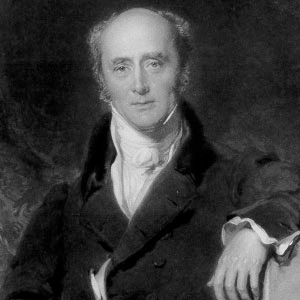
A firmly Whig politician, Earl Grey oversaw four years of political reform that had enormous impact on the development of democracy in Britain.
Earl Grey’s political experience before becoming the Prime Minister was limited.
He first took office briefly under Grenville in 1806, but it was nearly a quarter of a century before he returned to office as PM.
Earl Grey’s most remarkable achievement was the Reform Act of 1832, which set in train a gradual process of electoral change.
Indeed, it sowed the seeds of the system we recognise today.
Around 130 years of parliamentary reform began with this act and culminated in universal suffrage for men and women over 18, secret ballots and legitimate constituencies.
The battle to pass the historic act was a difficult one.
Grey resigned after the Lords rejected it, although he returned to office when Wellington found himself unable to form an administration.
Wellington then consented, and Grey was able to push the bill through.
Other reforming measures included restrictions on the employment of children, and the abolition of slavery in the British Empire in 1833.
Best-known for tea
One of Grey’s other legacies is the blend of tea known as Earl Grey. He reputedly received a gift, probably a diplomatic present, of tea that was flavored with bergamot oil.
It became so popular that Grey asked British tea merchants to recreate it.
After resigning in 1834, Grey did not linger in politics. He was greatly attached to his family, and he retired from the limelight to spend his remaining years with them.
He was said to be ‘tall, slim and strikingly handsome’ although in later years he went bald and wore spectacles.
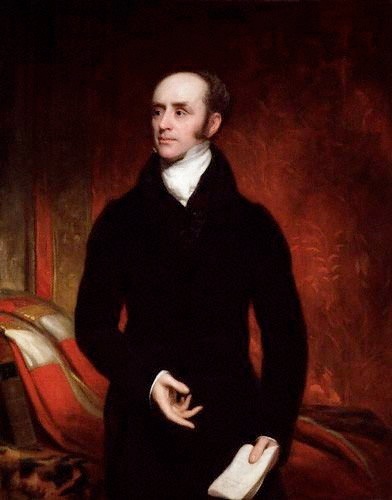
Ministry
11/22/1830 07/16/1834
Lord Grey — First Lord of the Treasury and Leader of the House of Lords
Lord Brougham — Lord Chancellor
Lord Lansdowne — Lord President of the Council
Lord Durham — Lord Privy Seal
Lord Melbourne — Secretary of State for the Home Department
Lord Palmerston — Secretary of State for Foreign Affairs
Lord Goderich — Secretary of State for War and the Colonies
Sir James Graham — First Lord of the Admiralty
Lord Althorp — Chancellor of the Exchequer and Leader of the House of Commons
Charles Grant — President of the Board of Control
Lord Holland — Chancellor of the Duchy of Lancaster
The Duke of Richmond — Postmaster-General
Lord Carlisle — Minister without Portfolio
Changes
June, 1831 — Lord John Russell, the Paymaster of the Forces, and Edward Smith-Stanley, the Chief Secretary for Ireland, join the Cabinet.
April, 1833 — Lord Goderich, now Lord Ripon, succeeds Lord Durham as Lord Privy Seal. Edward Smith-Stanley succeeds Ripon as Secretary of State for War and the Colonies. His successor as Chief Secretary for Ireland is not in the Cabinet. Edward Ellice, the Secretary at War, joins the Cabinet.
June, 1834 — Thomas Spring Rice succeeds Stanley as Colonial Secretary. Lord Carlisle succeeds Ripon as Lord Privy Seal. Lord Auckland succeeds Graham as First Lord of the Admiralty. The Duke of Richmond leaves the Cabinet. His successor as Postmaster-General is not in the Cabinet. Charles Poulett Thomson, the President of the Board of Trade, and James Abercrombie, the Master of the Mint, join the Cabinet.
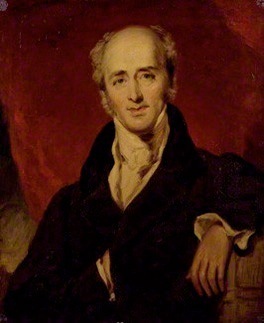
Family
Grey married Mary Elizabeth Ponsonby (1776 – 1861), only daughter of William Ponsonby, 1st Baron Ponsonby and Hon. Louisa Molesworth in 1794. The marriage was a fruitful one; between 1796 and 1819 the couple had ten sons and six daughters:
[a dau.] Grey (stillborn, 1796)
Lady Louisa Elizabeth Grey (7 April 1797 – 26 November 1841); married John Lambton, 1st Earl of Durham
Lady Elizabeth Grey (10 July 1798 – 8 November 1880); married John Crocker Bulteel (d. 10 September 1843). Their daughter, Louisa Emily Charlotte Bulteel, is one of the great-great-great-grandmothers of Diana, Princess of Wales
Lady Caroline Grey (30 August 1799 – 28 April 1875); married Capt. The Hon. George Barrington
Lady Georgiana Grey (17 February 1801 – 1900); never married
Henry George Grey, 3rd Earl Grey (28 December 1802 – 9 October 1894), eldest son, who became a politician like his father
General Sir Charles Grey (15 March 1804 – 31 March 1870), father of Albert Grey, 4th Earl Grey
Admiral Sir Frederick William Grey (23 August 1805 – 2 May 1878)
Lady Mary Grey ( 2 May 1807 – 6 July 1884); married Charles Wood, 1st Viscount Halifax
Hon. William Grey (13 May 1808 – 11 Feb 1815)
Admiral The Hon. George Grey (16 May 1809 – 3 October 1891)
Hon. Thomas Grey (29 Dec 1810 – 8 Jul 1826)
Rev. Hon. John Grey ( 2 March 1812 – 11 November 1895)
Rev. Hon. Sir Francis Richard Grey (31 March 1813 – 22 March 1890) married Lady Elizabeth Howard (1816–1891), daughter of George Howard, 6th Earl of Carlisle and Georgiana Cavendish (daughter of Georgiana Cavendish, Duchess of Devonshire).
Hon. Henry Cavendish Grey (16 October 1814 – 5 September 1880)
Hon. William George Grey (15 February 1819 – 19 December 1865)
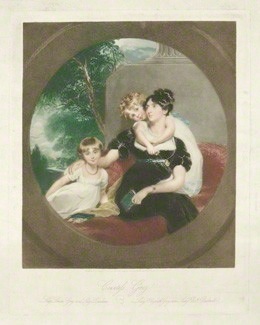
Mary was frequently pregnant and during his absences in London or elsewhere Grey had a series of affairs with other women. The first, most notorious, and most significant, which antedated his engagement to his future wife, was with Georgiana Cavendish, Duchess of Devonshire, whom he met at Devonshire House – the centre of Whig society in London in the 1780s and 1790s – shortly after his arrival in the capital as a young recruit to the House of Commons.
Impetuous and headstrong, Grey pursued Georgiana with persistence until she gave in to his attentions. She became pregnant by Grey in 1791, but she refused to leave her husband the duke, and live with Grey, when the duke threatened that if she did so she would never see their children again.
She went abroad with Elizabeth Foster, and on 20 February 1792 at Aix-en-Provence, gave birth to a daughter who was given the name Eliza Courtney. After their return to England in September 1793 the child was taken to Fallodon and brought up by Grey’s parents as though she were his sister.
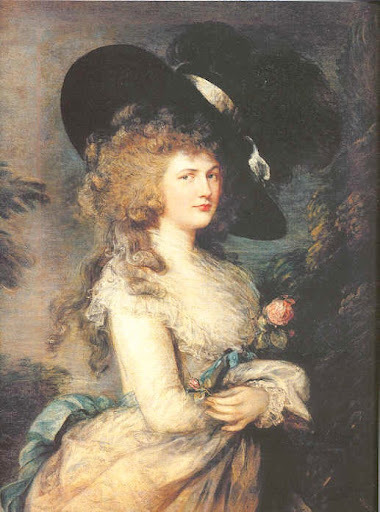
This affair was a significant step in the process by which he became a member of the Whig party, led by Charles James Fox.
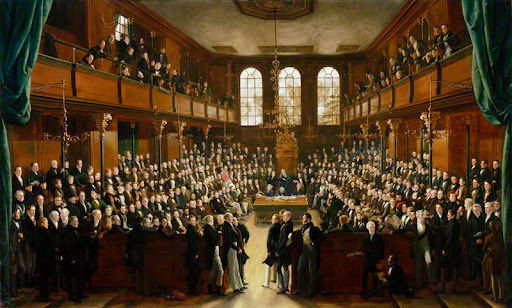
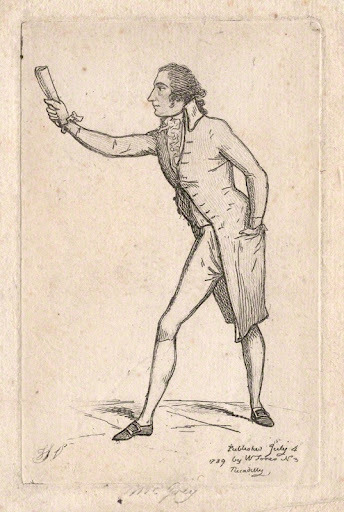
The Writing Life
My current writing project, a Fantasy, the third part of my trilogy on the son of Duke. It is the third in what I started when I left college. I finished the second part about 2 years ago, and so now I will wrap it up and reedit it all. It is tentatively titles, Crown in Jeopardy, the third book in the Born to Grace tale.
It opens with our hero setting up a trap for the enemies.
Chapter 2: Cynwal’s Folly
Caradoc sat atop his horse as the sounds of the horns reverberated over the camp. A call he had heard before this last few months as they battled the men of Powys. Foolish to announce there attack this way. But Caradoc’s men, those who were set to act as if they were taken unawares, rushed about, feigning a hunt for weapons and armor. Trying to convince an enemy now rushing towards them that they were unprepared.
Caradoc had only to wait and stand beneath his banner. He did not even have to order his men to counter attack. He just was to shout at the top of his lungs as he waited for the enemy to engage. Pandaemonium was the detail they were trying to convey and if Cynwal and his commanders saw what Caradoc did, then they would believe that was what was happening. That the men of Northmarch were taken unawares.
“Looks like it is working. That has to be six hundred cavalry charging this way.” Alain said. It was what reports had as there heavy armor. “Did they not think to send scouts to see how we prepared our fortresses? And what we would do to a field after dark had fallen.
“If they had seen us strew caltrops then they would know that we protect our camps. But then, we do not do so when there is light, nor half we left such behind us when we break camp. The enemy I suspect has wondered why our men have spent time cleaning the grounds that we are to leave. Telling the women and children that we have displaced that we do not want to leave them with any of our trash that they may use its value against us I hope would not work should that tale ever be told to me.”
Alain shook his head. “I suspect that Cynwal has never seen a foe spread caltrops and dig holes around a camp, and so does not think that you pick them up. None of Powys were with us when we went to the Holy Lands.”
“Knowing Arthur Argent and the family he married into, they are two cowardly for such.” Caradoc said. Then thought of Arthur’s son who was with Edward and the army going South. Gareth was punished by Edward for the deeds his father had done. They were cousins and Gareth had shown his bravery several times. Especially when defying the actions of his own father. Caradoc had to rescue the young man from his vengeful cousin when they returned to the main column. If they did so.
“I think Cynwal has gotten a few more troops then we thought.” Caradoc turned in his seat, and looked over the heads of the men crouched on their knees below him. He peered to where the false dawn showed the fields and the enemy coming from the distance. “Yes, I make out three thousand here to the front, these cavalry, and then there is at least four thousand behind.”
Alain nodded, then said, “You had planned for ten. We are prepared for this then.”
“As a Vater of Valens, you may always be ready for war, my old mentor, but I have yet to be ready for battle. No matter how many times we are about to enter it.”
“Well, here we go again. And to tell you truthfully, no Vater of Valens is ever ready for battle. No Vater ever wants battle. But we do want it to be as quickly and mercifully done as it may be. Contradictory of course, but often men say war is fought for just means.”
Caradoc frowned. It had been what he had been thinking of the previous night. “There are no just means in war. Or ends. But should Cynwal fall, then perhaps it will be worthwhile. I wonder if he thinks the same as I. That should he slay me, then he will see some resolution. Yet he must also slay Padaric.”
“Which his allies attempt,” Caradoc heard Jamus from in front of him. That they had heard. That the enemy in their coordination to attack all on the same day had attempted such. They had failed, but they had tried.
The enemy neared enough and Caradoc urged his mount forward, “MacLaughlin!” he shouted. The clansmen responded immediately. And so too did the others that had travelled with them north. More than twelve hundred voices shouted the name. Many more.
“They are not phased.” Caradoc said, though it could not be heard much over the chanting of his name. From the tents in the encampment, much larger than would hold two men, but would hold eight and ten, came forth men in armor, prepared for battle.
Alain knew what he had said, though he probably did not hear it. He said something as well. Caradoc was sure that it was along the lines that it did not matter if the enemy understood that more men were appearing in the Northmarch camp. The enemy was committed from too many directions for Cynwal to stop. And the Cavalry unit, amongst which he rode, had begun a charge that it would be near impossible to stop.
The end of Cynwal and his forces was imminent. Caradoc hoped. Caradoc would do his best to see to. It was time to end the Clanrex of Powys. Something that had been done before by a MacLaughlin and had to be done again.
“MacLaughlin” was shouted again and from where he sat, he could see that the charge of the enemy faltered as the caltrops and holes that had been dug were encountered. A counter charge would be dangerous, but there were posts on the inside of the encampment that had been put up to show where safe lanes were. Wide enough for three and four mounted men to ride out, but not more. And then a hundred paces would free them of the danger.
Caradoc though did not intend to ride just yet. Not until the other enemy had marched into the killing grounds. Then, when they were caught up and the archers of Northmarch fired into them, he would ride through the killing lanes, as would three thousand. Through and then, to back of the attackers, where he would try to push them further against their fortified camp.
That, or look for Cynwal and try and kill the man. That would bring an end to things he hoped. Finding Cynwal.
The first of the foot soldiers of Powys had reached the edge of the caltrops infested area and they were not happy. As soon as they understood the danger they began to step gingerly and avoid the harmful spikes. But they did slow tremendously. And they began to be hit with the arrows of Northmarch.
Caradoc had more than six thousand men with him. The Magus had cloaked the movements of many of the troops. Resting hidden under cover of magic during the day, and moving to join forces with Caradoc at night. The enemy only noticed that they had the troops that he had wanted them to see. Now it was a surprise to find so many Northmarchers there and fit to fight.
The enemy moved closer and all the men that Caradoc had been hiding were either at the makeshift wall, or formed up to rush forth and attack.
The enemy cavalry, Cynwal’s Clanrex standard amongst them, mired in the field to the front of the camp. Caradoc caught Avram’s attention and mouthed a question. Avram looked and held up two fingers. Beckoning the enemy to move closer. Then it was just one finger and finally, Avram turned to Caradoc and smiled widely, while waving to some of the horns to sound the attack.
Even as Caradoc heard the notes from the horns he was spurring his horse. As too did Jamus and the other bodyguards. They were watching Caradoc and saw when he had communicated by signal to Avram. Three thousand Cavalry were making there way out of the camp by way of first four exits, and then ten lanes that had been marked. The enemy there, were a little thicker as they did not have to deal with holes or caltrops to slow them. Yet they did not expect to be counterattacked.
Caradoc raised his sword and swung heavily at a man who stood at the side of the lane that his men were clearing. He was not allowed to lead this charge from the front, nor even could he hold his horse to the flank of a lane, as Jamus ensured that he was to one side of him and Vater Alain was to the other. But a man had gotten past his bodyguard and this was where Caradoc aimed.
He was not surprised when the clansman of Powys fell. Caradoc was mounted and had a great height advantage and the man was caught between two mounted warriors. The smartest thing would have been to run away. The Clanrex had done his best to stop his men from doing that once more.
The lane that Caradoc had his guardsmen travel was the one that would lead them closest to the Clanrex and his warriors. Caradoc’s spies had relayed that not all amongst the army they faced were of the Powys clan. Some where there with great reluctance to serve the Clanrex. And Caradoc hoped, should he force upon Powys another defeat, now on their own lands, perhaps those who had given the man their allegiance would think twice before giving such to another who claimed to be a part of that clan.
A much bigger and complex picture, but one that Duchess Amanda had been working towards for years. One that she had sent emissaries once more the leaders of other clans reminding them that should the area that Powys looked to as its lands have a clanrex not of the Powys clan, then friendship with Northmarch and an end to warfare might be possible.
“We have to get Cynwal. We may not get another chance. Someone must bring the Clanrex down.” Not that he had made death of the Clanrex the cause for the incursion that they had made into Powys, but it was a part of it. Forcing the Clanrex to respond until he had exhausted his resources, until he too felt the devastation that his troops had been causing in Hull. That was why they had come north and forced battle. Though, if Caradoc was to tell himself why they came, it was really to kill Cynwal. The man should have been responsible for his son. Hyfaidd was part of the ambush upon those of Northmarch. Could he really have done all that he did with out his father knowing?











